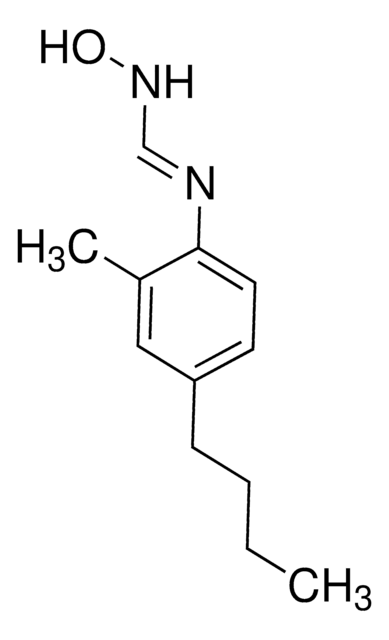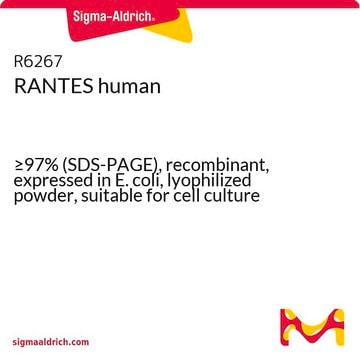H3023
20-Hydroxy-(5Z,8Z,11Z,14Z)-eicosatetraenoic acid
≥90% (HPLC), liquid, Ras/MAP pathway activitor
Synonyme(s) :
20-HETE, 20-Hydroxyarachidonic acid
About This Item
Produits recommandés
product name
20-Hydroxy-(5Z,8Z,11Z,14Z)-eicosatetraenoic acid, ~100 μg/mL in ethanol, ≥90% (HPLC)
Niveau de qualité
Pureté
≥90% (HPLC)
Forme
liquid
Concentration
~100 μg/mL in ethanol
Conditions d'expédition
dry ice
Température de stockage
−20°C
Chaîne SMILES
OCCCCC\C=C/C\C=C/C\C=C/C\C=C/CCCC(O)=O
InChI
1S/C20H32O3/c21-19-17-15-13-11-9-7-5-3-1-2-4-6-8-10-12-14-16-18-20(22)23/h1,3-4,6-7,9-10,12,21H,2,5,8,11,13-19H2,(H,22,23)/b3-1-,6-4-,9-7-,12-10-
Clé InChI
NNDIXBJHNLFJJP-DTLRTWKJSA-N
Actions biochimiques/physiologiques
Conditionnement
Mention d'avertissement
Danger
Mentions de danger
Conseils de prudence
Classification des risques
Eye Irrit. 2 - Flam. Liq. 2
Code de la classe de stockage
3 - Flammable liquids
Classe de danger pour l'eau (WGK)
WGK 1
Point d'éclair (°F)
57.2 °F - closed cup
Point d'éclair (°C)
14.0 °C - closed cup
Équipement de protection individuelle
Eyeshields, Gloves, type N95 (US)
Certificats d'analyse (COA)
Recherchez un Certificats d'analyse (COA) en saisissant le numéro de lot du produit. Les numéros de lot figurent sur l'étiquette du produit après les mots "Lot" ou "Batch".
Déjà en possession de ce produit ?
Retrouvez la documentation relative aux produits que vous avez récemment achetés dans la Bibliothèque de documents.
Les clients ont également consulté
Notre équipe de scientifiques dispose d'une expérience dans tous les secteurs de la recherche, notamment en sciences de la vie, science des matériaux, synthèse chimique, chromatographie, analyse et dans de nombreux autres domaines..
Contacter notre Service technique











